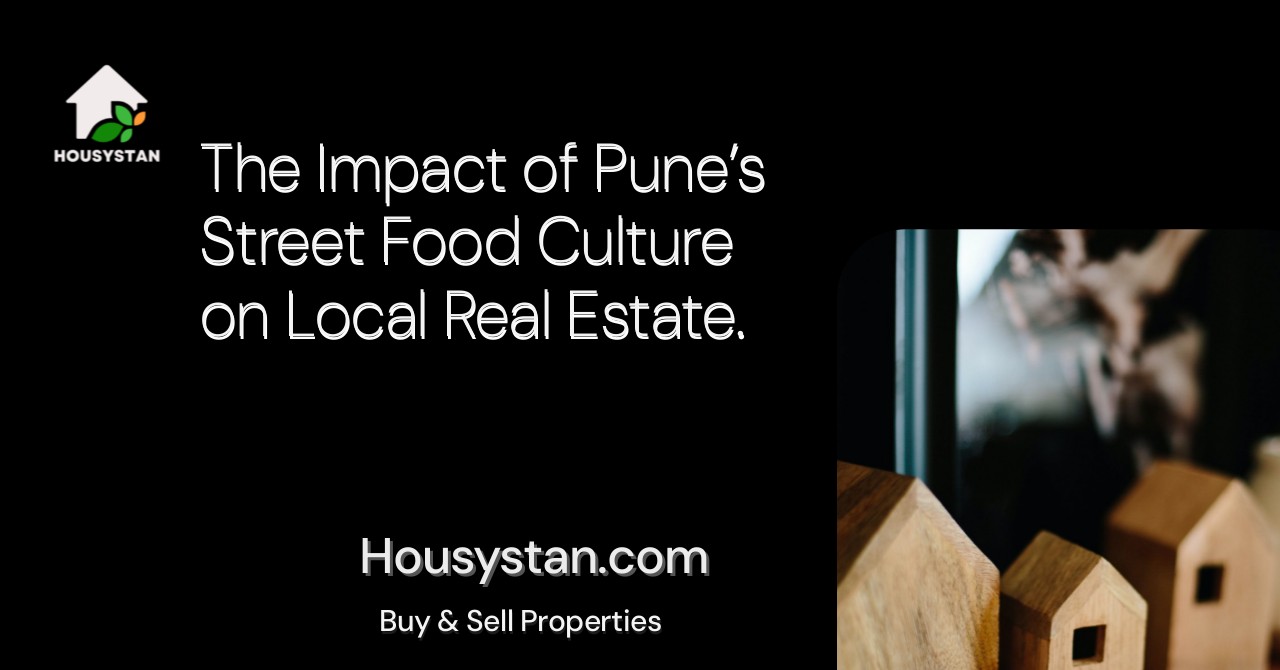The Impact of Pune’s Street Food Culture on Local Real Estate
Read latest blogs and articles from Housystan

The Information mentioned here was last updated on:
29/1/2026The Impact of Pune’s Street Food Culture on Local Real Estate
Pune, a vibrant city in Maharashtra, is renowned for its thriving street food culture. From bustling food lanes in Camp to aromatic vada pav stalls in Kothrud, the city’s culinary landscape draws both residents and tourists alike. But beyond just satisfying taste buds, Pune’s street food scene has a profound influence on the local real estate market, shaping commercial growth and residential preferences across neighborhoods.
Areas such as FC Road, JM Road, and Viman Nagar have become hotspots not just because of their central locations, but also due to the rich variety of food options available. These lively food hubs attract steady footfall, making them attractive destinations for investors and entrepreneurs. Properties near popular food streets often command higher rental values, thanks to the increased demand for both retail and residential spaces. As food lovers flock to these areas, realtors observe a surge in inquiries for shops, commercial plots, and apartments within walking distance of renowned food stalls.
- Verified Tenants/Buyers
- Unlimited Property Listing
- Zero subscription/charges fee
Furthermore, Pune’s ever-expanding IT sector brings in a diverse population, increasing the appetite for varied cuisines. This cosmopolitan influence has led to the emergence of fusion food carts and gourmet street vendors, further enhancing the appeal of certain neighborhoods. In turn, the presence of unique food experiences boosts the desirability of nearby properties, prompting developers to invest in mixed-use projects that blend dining, retail, and residential amenities.
Accessibility and convenience play a crucial role in shaping real estate trends. Homebuyers and tenants often prioritize locations with easy access to daily amenities, and Pune’s popular food streets fit this requirement perfectly. Families, students, and young professionals are drawn to localities that offer not just great connectivity but also a vibrant lifestyle, anchored by the city’s rich street food heritage.
In summary, Pune’s dynamic street food culture acts as a catalyst for real estate growth, influencing property values and shaping urban development patterns. For anyone considering property investment or relocation in Pune, proximity to food-centric destinations emerges as a significant factor, reflecting the city’s unique fusion of tradition, taste, and modern convenience.